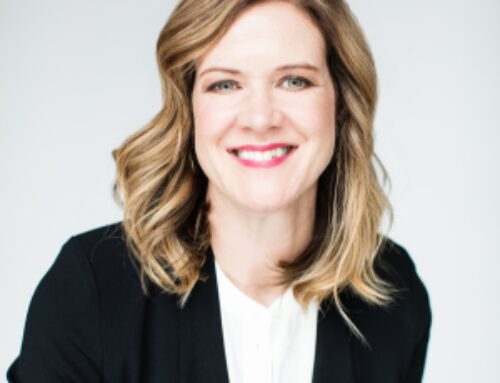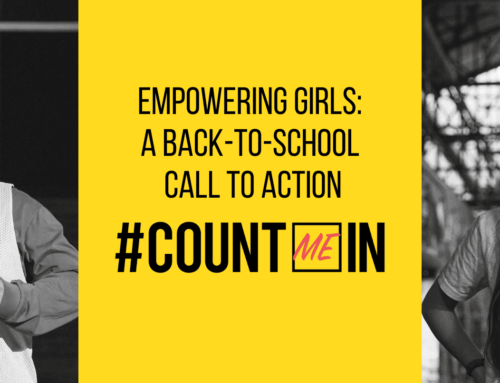
I can. It was two months ago at a hair salon. I had taken a vacation day and there I was sitting in the salon chair, so excited to try out a new style. It was a teaching salon and the instructor was looking to show the student what might be a good style for me. As I made suggestions and showed photos of what I like, they were speaking as if I wasn’t even there – “don’t cut it here – look how WIDE that makes her neck look!”
A wave of feelings came over me. At first I was shocked and deflated. Did my NECK just get body shamed? Did that really just happen? Then I felt myself fighting back tears, while feeling silly for being offended. And then, for some reason completely beyond me, I tried to justify the teacher’s behavior. I thought to myself “It’s a hair school, they have to teach the students. And at least the teacher attempted to make an apology afterwards.”
But then I got angry. Mad that I was justifying that kind of behaviour. Mad that this was how a gloriously sunny day had started off. Mad that my day off work had been hijacked by a body shaming incident. Mad that this was even something I had to encounter in this day and age. And I left that salon with guilt that I carried with me for the rest of the day – guilt for being so sensitive about someone else’s off-hand comment and for letting it stick to me like glue everywhere I went.
I’ve found body shaming can be intentional or unintentional. Either way it’s not any less excusable or hurtful. Sometimes it comes from a stranger, sometimes it comes from someone you know well – a family member, friend, or coworker. It can be about anything – a specific part of your body, your skin colour, your hair, your body size and/or shape, your body language and mannerisms, how you choose to dress and present yourself. It’s frustrating because it’s a no-win situation. There is always a critic and women’s bodies are apparently always open to critiques.
Since the salon incident, I’ve realized that most of the feelings I was having were coming from a place of over-responsibility. I was somehow feeling responsible for what others were saying to me – like the fault was with me and not them. To explore this concept more, I talked to Jill Andrew, body positivity advocate and Body Confidence Canada Awards founder. Together we’ve identified three tips for moments where you may find yourself feeling overly-responsible for other people’s words and/or actions:
-
Be watchful for over-responsibility and get to know which people and situations cause those feelings for you: The first step is recognizing that you’re taking responsibility for someone else’s actions. The second step is knowing exactly when you tend to feel that way and why. I find those feelings creep in for me when a comment comes from someone I feel like I *should* listen to – someone in a position of power or someone who is an expert in their field. It can also happen with people who are close to me because I value their opinions. And beyond that, it’s not impossible for it to happen when it’s a stranger either. I like to give myself a gentle reminder that I am not responsible for someone else’s reaction to me – EVER – regardless of who is making the comment or my relationship with them.
-
Ask for what you need, but be aware that you may or may not get it: Part of keeping over-responsibility in check is recognizing that you can’t expect specific responses or outcomes from others; while you have full power over your own response, you cannot control other people’s responses no matter how strongly you may want to! It’s helpful to work on letting go of the desire to do that. You may think something you say to another person will elicit the kind of response you want, but that isn’t always the case. I know that when I’m upset, I tend to look for a genuine apology. It’s worthwhile to pause and think about what kind of expectations you may be placing, consciously or otherwise, on the other party’s response. As I ask for what I need, I try to make sure I remind myself that I may not get the outcome I expect. This doesn’t mean I shouldn’t ask for what I need – whether it’s an apology, a request that they not be so concerned with my body because I’m quite happy with it, or anything else. I realize that I may not see the outcome I wish for simply because I am not responsible for how the other person chooses to respond.
- Check that you’re not still carrying over-responsibility and associated feelings with you and find your formula for release: The last step for me has been to make the space and time after this kind of situation to ask myself honestly “Is this still bothering me? Am I still carrying some or all of those feelings with me?” Along with practicing not being over-responsible for someone else’s comment about me, I’ve found I need to actively release their comment or else it kind of “sticks to me” in a way. That kind of release can look different for everyone – for me, there have been cases where I have been vocal about it publicly because that’s what I felt I needed. Other times I have kept it private but looked to friends and family and online forums for support. There is no right or wrong way to release someone else’s commentary – what’s important is that you take the time and space to do what you need to feel good. This is not at all about trying to “put a happy spin” on what happened or trying to find some sort of silver lining in it all – words hurt, plain and simple. And everyone deals with others’ comments in their own way. It’s also not about setting a timeline for finding release – since release looks different for everyone, the time that it takes to get to a good place is different for everyone.
Celebrating our bodies and all that they do for us also helps us stay grounded and resilient against body shaming. On October 6, the Body Confidence Canada Awards will do just that. Check back here on the Canadian Women's Foundation blog after for a recap of the event.
For more information on the Body Confidence Canada Awards (BCCAs), visit www.BodyConfidenceCanadaAwards.com and follow on Twitter @BCCAwards. The Canadian Women's Foundation is proud to be a BCCAs community partner.
Learn More
- Got Body Confidence?
- Finding Body Confidence and Living Life Out Loud
- Creating A New Culture of Body Love, One Page at a Time
Take Action
- Take the pledge to join GEN1 and help build the first generation free of violence against women and girls.
- Sign up for our e-newsletter to have our latest stories and resources sent to your inbox.
- Follow us on Facebook and Twitter to join a national conversation on gender equality.







